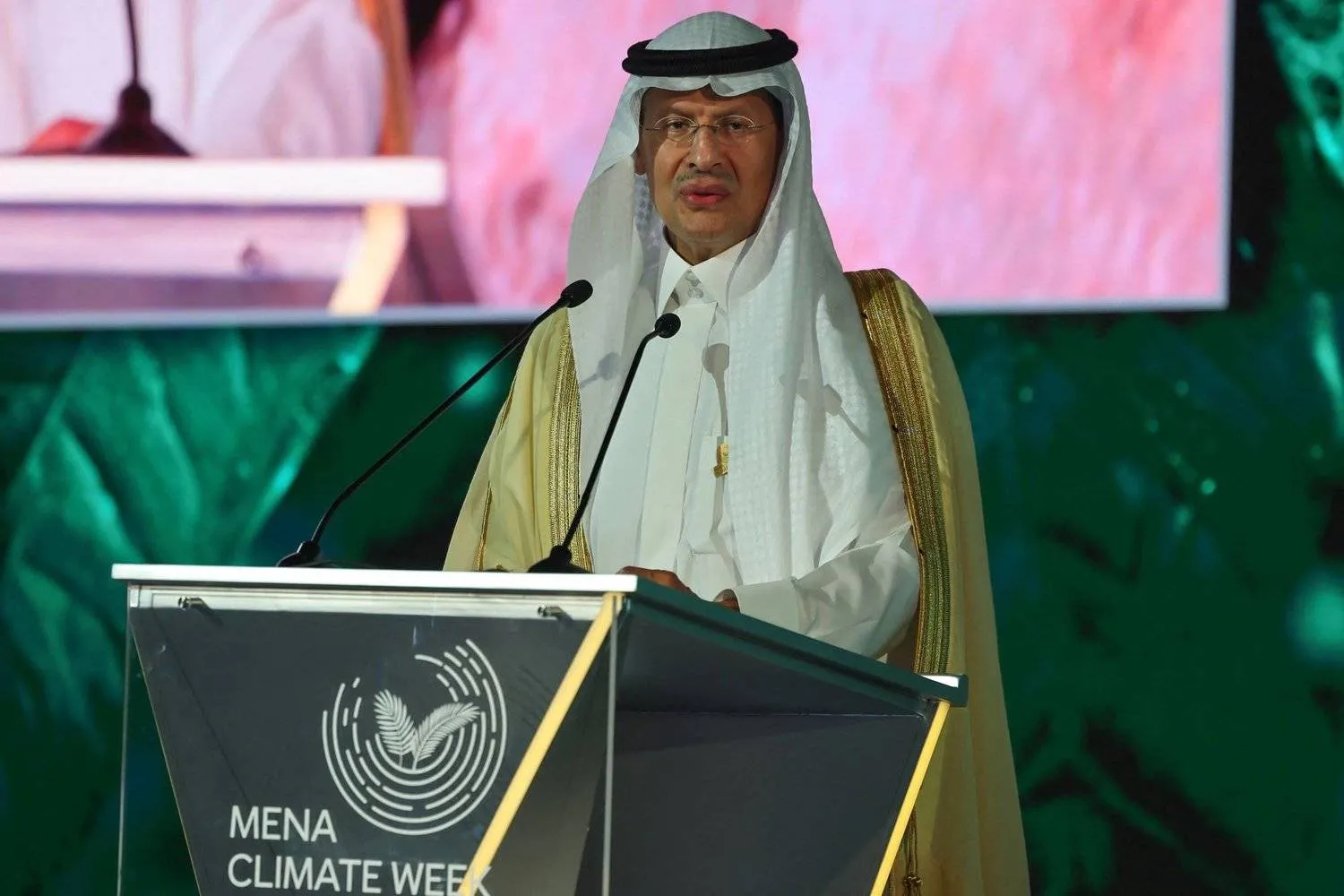Saudi Energy Minister Prince Abdulaziz bin Salman has said it was necessary to be "proactive" on the oil market and attempt to bring stability to it, while adding that oil producers do not target prices.
In a Russian TV interview aired Thursday, Prince Abdulaziz said the market was unpredictable and "cannot be left on its own."
"We are not magicians. It is hard to forecast what will happen on the market even in half a year," he told Rossiya-24 state TV.
The minister said the need to act on the oil market depended on its volatility, adding that attempts to target prices had failed in the 1980s.
Saudi Arabia and Russia have agreed to continue with voluntary oil supply cuts of 1.3 million barrels per day, or more than 1 percent of global demand, to the end of the year.
Abdulaziz said the terms of the deal would be evaluated every month.
In the same interview, Russian Deputy Prime Minister Alexander Novak said Russia's deal with OPEC+ had had a stabilizing effect.
He noted that the balance between supply and demand is fragile and could be affected by the slowdown in global economic growth.
Abdulaziz stated that the two countries seek to strengthen trade relations, while Novak explained that Russia and Saudi Arabia discussed the mutual lifting of visa restrictions.
Meanwhile, Novak said on Thursday that Russia's pledges to the OPEC+ group to cut its oil exports included a reduction in oil products, according to news agencies.
Novak's statement stoked confusion over Russia's plans to reduce oil supplies.
In his original announcement of the plans to cut oil exports by 300,000 barrels per day (bpd), Novak had not mentioned oil products but had spoken only about oil.
"When we talk about the oil market and production, oil is produced and then supplied for processing. Therefore, of course, everything is considered together. The final product, of course, takes into account the volumes that are produced," Novak said in response to a question on whether oil products were included in the export reductions, according to Interfax news agency.
It would be easier for Moscow to cut overall exports of crude oil and fuel after Russia announced on Sept. 21 a ban on fuel exports to tackle domestic shortages and high prices. It lifted the ban on most oil products last week.
- OPEC maintains demand expectations
On Thursday, OPEC stuck to its forecast for relatively substantial growth in global oil demand in 2023 and 2024, citing signs of a resilient world economy this year and expected further demand gains in China.
The Organization of the Petroleum Exporting Countries (OPEC) said in a monthly report that world oil demand will rise by 2.25 million barrels per day (bpd) in 2024, compared with growth of 2.44 million bpd in 2023.
Both forecasts were unchanged from last month.
A lifting of pandemic lockdowns in China has helped oil demand rise in 2023.
OPEC consistently forecasts stronger demand growth for next year than other forecasters, such as the International Energy Agency (IEA).
"In 2024, solid global economic growth, amid continued improvements in China, is expected to boost oil consumption further," OPEC said in the report.
The report also said that demand in the rest of this year and next could take a hit in some parts of the world and trimmed its forecasts for total world demand in the current quarter and the first three months of 2024.
OPEC said: "Looking ahead and despite the usual seasonal rise in heating oil demand, ongoing uncertainty and economic developments in OECD Europe and other areas are expected to impact oil demand in the remainder of 2023 and 2024."
The OPEC report also said OPEC oil production rose in September despite pledged OPEC+ supply cuts, driven by increases in Nigeria, Saudi Arabia, and Kuwait.
Meanwhile, the International Energy Agency said in its latest monthly oil market report that while the Israel-Hamas war had not yet directly impacted physical supply, oil markets would "remain on tenterhooks" as the crisis unfolds.
"The Middle East conflict is fraught with uncertainty, and events are fast developing," the IEA said in its report.
"Against a backdrop of tightly balanced oil markets anticipated by the IEA for some time, the international community will remain laser-focused on risks to the region's oil flows," the energy agency added.
Noting a "sharp escalation in geopolitical risk," the IEA said it would continue closely monitoring oil markets and "stands ready to act if necessary to ensure markets remain adequately supplied."









